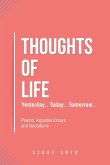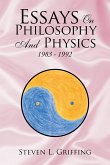Framed as a philosophical dialogue between teacher and student centered on a question of supreme interest to all thinking persons - whether man's soul or essence is immortal - the work is an attempt to reach a conclusion by integrating into a coherent whole various diverse influences in the life of the author. Inspired by various sources, Eastern and Western, and many years or personal soul searching, the dialogue reflects an optimism in the face of pain or loss that is the result of the author's lifelong passion for philosophy. When it was first suggested to the author that a brief introduction to John's Song of Life might be helpful to the reader, his initial reaction was that the dialogue should speak for itself. After some reflection, however, he came to the conclusion that a few words about his background and how this work came to be written might be of interest to at least some of his readers. The effort to philosophically bridge the gap between East and West made herein is the result of the author's attempt, after many years of study and reflection, to assimilate and integrate into a coherent whole, if possible, differing influences in his life and, specifically, to summarize a personal faith which is both religious and philosophic. Born and raised a Catholic in New York, the author readily acknowledges his debt of gratitude for the invaluable education, religious and secular, he received at the parochial schools he attended over the course of twelve years. Then, after starting college over forty-five years ago, he was introduced one fateful day by a friend to Samuel Weiser's bookstore at 845 Broadway in New York. There he discovered a veritable treasure-house of countless gems of Eastern wisdom. One of the staff was especially helpful and introduced him to the works of Paul Brunton, an Englishman who became an authority on Yoga and India's higher philosophy. In a short while, the author, who had theretofore read only Western philosophy in school, became a serious student of Eastern philosophy and, in the process, a pretty good customer of the bookstore. Eventually, one of the proprietors was instrumental in the author's acquisition of some of Paul Brunton's letters from a dealer in California. The author never became a professional philosopher. He went from college to law school and thereafter chose a legal career with the State of New York. He did remain a student of Eastern philosophic thought. And was fortunate enough, over the years, to have enjoyed many peaceful weekends of quiet reflection at St. Ignatius Retreat House in Manhasset, New York. It is in this vein that he offers his own reflections for whatever they may be worth to other seekers after truth. What is it really that we seek? One author, John Levy, aptly says that the words "ultimate reality" refer to "a hunger which concepts . . . even creeds, entirely fail to meet, a hunger that is innate in every enquiring person." Can this hunger ever be satisfied? That ancient classic of Eastern wisdom, the Ashtavakra Gita, repeatedly enjoins us to "be happy." This command implies that man's innate hunger and heartfelt longing for the Ultimate can be completely satisfied, notwithstanding the failure of finite human intellect to comprehend It. But does Western wisdom agree? Happily, the answer is yes. The Judeo-Christian tradition includes the beautiful Book of Psalms where we find the famous injunction, "Be still and know that I am God" (Psalms 46:10). Clearly, these words indicate that knowledge of God awaits the man or woman who can find the stillness behind the ever-moving mind. But in our hectic society, can such stillness ever be found? What is Yoga if not a discipline to achieve such an end? That such a discipline has existed in the West as well as the East, though under a different label, is clear from the English mystical classic The Cloud of Unknowing. The author, in examining life as Socrates urged, is an optimist at heart. In the dialogue wh
Hinweis: Dieser Artikel kann nur an eine deutsche Lieferadresse ausgeliefert werden.
Hinweis: Dieser Artikel kann nur an eine deutsche Lieferadresse ausgeliefert werden.

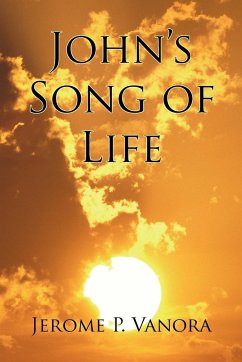
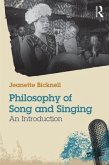
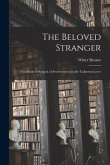
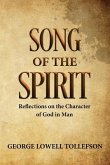
![A Sermon Preached in the Cathedral Church, Fredericton, and in St. John's Church, St. John, on the Occasion of the Late Calamitous Fire [microform] A Sermon Preached in the Cathedral Church, Fredericton, and in St. John's Church, St. John, on the Occasion of the Late Calamitous Fire [microform]](https://bilder.buecher.de/produkte/66/66164/66164928m.jpg)
